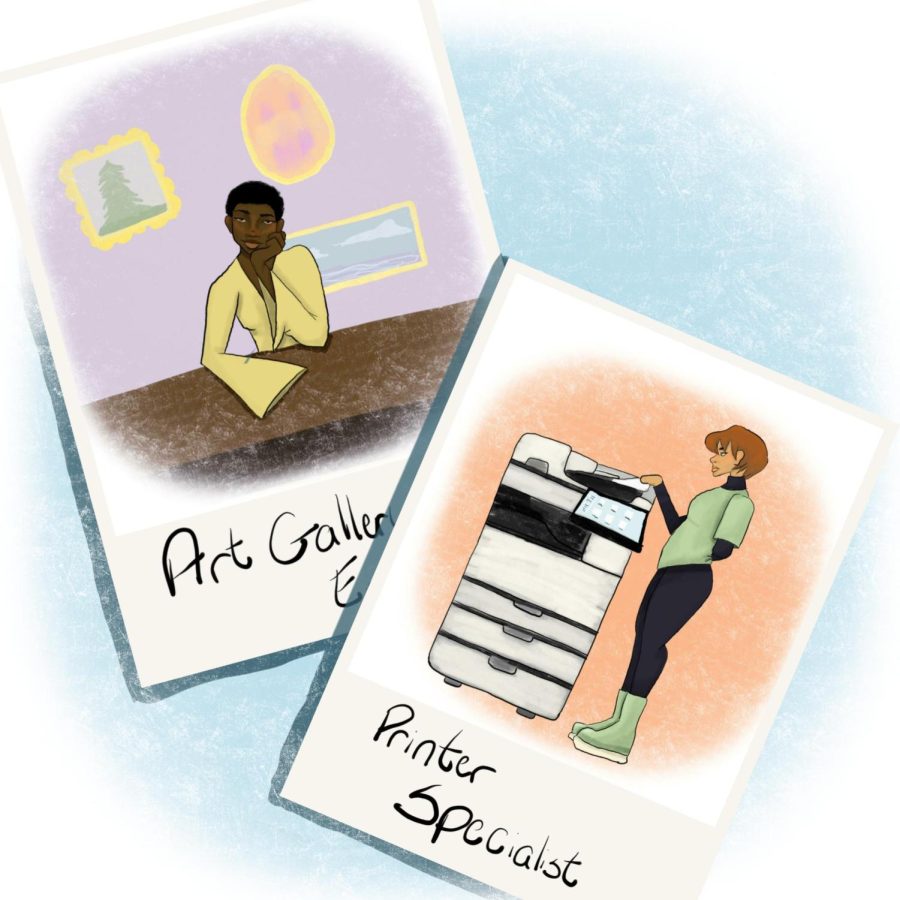Federal work-study helps students afford college, extend career opportunities
October 2, 2022
As college prices across the country and at Pitt increase, many families need help. According to Forbes, more than half of undergraduates leave college with debt, owing about $29,000 on average.
One of the methods that helps students afford college across the country is the federal work-study program, which was created in 1964. Under the program, full-time students with a demonstrated financial need work 10 to 20 hours per week at eligible jobs. According to Randy McCready, the executive director of strategic financial aid initiatives, between 700 and 800 Pitt students use work-study awards every year.
The amount of monetary assistance is contingent on individual financial situations and hours worked. According to Pitt’s Federal Work Study webpage, the federal government pays for a portion of the student’s wages, and the department in which the student works pays for the rest. Students are paid directly, rather than the common misconception that students’ earnings get subtracted from their tuition prices.
Nora St. Clair, a senior anthropology major, works at the University Art Gallery. She said the pay is not ideal, but the working conditions are satisfactory.
“The pay is considerably low, not too much above minimum wage, which isn’t great, but considering the fact that the job itself is nearly always low-effort, I can’t really complain,” St. Clair said.
Avery Moore, a junior finance major works at Pitt IT as a printer specialist. She doesn’t have a work-study award, however.
“It’s really cool to be able to have a job that works with your school schedule, and I like going to different buildings around campus to fix printers,” Moore said.
Moore said her work shifts are very practical in relation to her class schedule. According to Moore, she works two to three hour shifts, and when she isn’t fixing printers, she can do school work.
Students partaking in the program can work at on-campus locations or any eligible non-profit agency or organization. McCready said there is a wide array of options for work-study programs, and they are listed on Pitt’s Talent Center webpage.
“The University of Pittsburgh’s Talent Center at my.pitt.edu lists most of the available student positions,” McCready said. “There are plenty of student employment positions to be filled. So, if there is a specific place you would like to work on campus, take some initiative and ask if there are available positions.”
Off-campus locations open to work-study employment include the Carnegie Library and Museum of Natural History, Children’s Hospital, Hillel Foundation and more. Students are permitted to work up until the Friday of finals week during each semester. St. Clair said the weekly hours are determined by individual availability.
“The hours are very limited due to my own class schedule and the gallery’s hours. Because I’m only working five to 10 hours per week, the pay doesn’t really add up to much,” St Clair said. “There are also times where it gets busier and then I feel like I’m not really doing anything productive, either at work or for my own school stuff.”
According to McCready, many students with work-study awards seek employment with PittServes, a University group that partakes in lots of charitable work, such as placing students in tutoring positions through the “America Reads Challenge” program. This program helps local young students with essential literacy skills. McCready also said students can select work-study positions that help them advance their career.
“If there is a specific area you would like to work around the University to help build your resume, that is a great place to check out,” McCready said.
Students who are seriously considering applying to the work-study program should contact the Office of Financial Aid for more information and to see if they qualify for the program, according to McCready. He also said many students really enjoy their work-study, and it can open doors for students’ career goals.
“A work-study job is a great way to help build your resume and open doors to future opportunities,” McCready said. “Many of us working today at the University fell in love with higher education through our work-study jobs!”
Correction: This article originally said Avery Moore’s job is work study. While her job is an on-campus position at Pitt, she is not a part of the federal work-study program. The Pitt News regrets this error.



